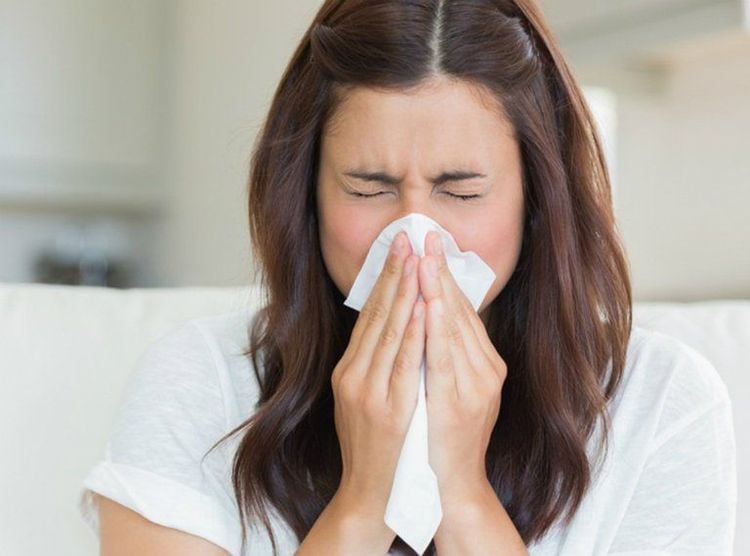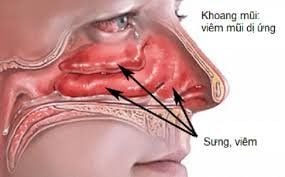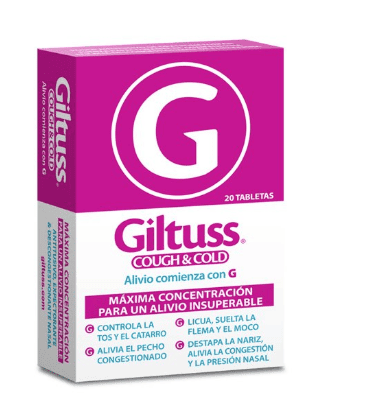This is an automatically translated article.
Allergies and colds are two common illnesses in winter and have many similar symptoms. Accordingly, it is necessary to distinguish allergies and colds in order to have the right treatment for each specific case.1. Related concepts of colds and allergies
1.1 What is a cold?
Colds are usually contagious diseases caused by viruses. When the body cannot adapt to the cold, the body is susceptible to attack by viruses, leading to symptoms in the upper respiratory tract (nose, throat). Cold symptoms are not caused by a virus, but by the body's response to the virus.
Symptoms of a cold include:
Coughing or sneezing. Viruses are also transmitted this way; Sore throat, stuffy nose and runny nose; Headache, fever, body aches (when with a severe cold). Usually, patients have a cold for about 7-10 days. If symptoms persist for more than a week or two, the virus can cause a more serious infection such as pneumonia, sinusitis or bronchitis.
MORE: How are flu symptoms different from cold symptoms?

Nghẹt mũi là một biểu hiện của cảm lạnh
1.2 What is an allergy?
Allergies occur when the body's immune system has an adverse reaction to certain substances. When a person is exposed to an allergen (the agents that cause an allergic reaction), the body's immune system releases histamine, which causes allergy symptoms.Common allergens include: Plants, grass, pollen,... Other agents include dust mites, animal dander or saliva, molds, foods (peanuts, fruit seeds, eggs, etc.) milk,...).
2. Differentiate between allergies and colds
2.1 Similarities between allergies and colds
Colds and allergic rhinitis are common cold or seasonal conditions. They share some common symptoms including coughing, sneezing, runny nose, stuffy nose, sore throat, watery eyes, and fatigue. Accordingly, people with allergies may be more susceptible to colds. Young children are also more susceptible to colds due to weaker immune systems than adults.MORE: Nasal sprays to relieve colds

Viêm mũi dị ứng và cảm lạnh có những biểu hiện giống nhau
2.2 The difference between allergies and colds
About the cause:
Cold: An infectious disease caused by certain viruses; Allergies: A condition in which the immune system reacts to foreign factors that invade the body, helping to protect the body. When attacking foreign factors, antibodies bring unpleasant symptoms to the body. About the possibility of infection:
Colds: Easily contagious from patients to close contacts; Allergies: Not contagious. About symptoms:
Colds: Symptoms appear slowly after an incubation period, slowly disappearing. Colds have symptoms of fever and body aches, but allergies do not; Allergies: Symptoms appear immediately upon contact with an allergen, if the allergen is removed, the symptoms will disappear. When the disease recedes, all symptoms disappear, the body is healthy and normal. Allergies can also cause itchy eyes and rashes, while colds usually don't have these signs; Duration of symptoms:
Cold: The illness gets better within 1 week; Allergies: Symptoms persist until the allergen is treated and eliminated. Seasonal allergens tend to cause symptoms every 2-3 weeks. SEE ALSO: Allergy & Cold PE Allergy & Cold PE: Uses, indications and precautions when using

Các triệu chứng của viêm mũi dị ứng thường kéo dài hơn
3. What to do if you have cold or allergy symptoms?
First, the patient should see a doctor instead of self-medicating for an accurate diagnosis, followed by complying with the doctor's instructions. Patients with colds are often given painkillers, antipyretics, anti-congestion and tonics to increase the body's resistance. In addition to taking medication, the patient is also advised to gargle with salt water and spray the nose with saline in the form of a mist. At the same time, it is necessary to rest and work reasonably, to avoid labor, to eat hot and easy-to-digest foods to provide nutrition, warm the body and help clear the nose.For people with allergic rhinitis, in addition to using oral anti-allergic drugs and sprays prescribed by the doctor, patients also need to minimize contact with possible allergens. Besides, because anti-allergic drugs often have two-way effects, if used incorrectly or abused can cause side effects. Therefore, the patient should follow the doctor's instructions when taking the drug. At the same time, patients should perform the necessary tests to accurately determine the allergenic factor, thereby directing appropriate prevention and treatment.
Symptoms of colds and allergies are relatively difficult to distinguish. When it is not certain that they have allergies or colds, patients should visit a hospital for an accurate diagnosis and effective treatment.
With many years of experience in the examination and treatment of respiratory diseases, now Vinmec International General Hospital has become one of the major health care centers, capable of examination and screening. and treat many specialized diseases. Therefore, when you have symptoms of allergies and colds, you can go to Vinmec International General Hospital for examination and receive support and advice from doctors for appropriate treatment.
Please dial HOTLINE for more information or register for an appointment HERE. Download MyVinmec app to make appointments faster and to manage your bookings easily.













